It seems like you can’t round a corner without running into one movie or another telling the so-inspirational story of some underdog athlete who beats the odds and did a thing really really well. But the world of sport is as much a world of business as it is of singular achievement, a team effort well beyond the actual team one may be rooting for. With Ivan Reitman’s Draft Day hitting theaters this Friday, I got to thinking about all the movies that take us into that world, telling stories from some perspective other than an athlete’s.
10.) Trouble With the Curve (Robert Lorenz, 2012)
The directorial debut of Clint Eastwood’s stalwart assistant director, and later producer, practically claims exclusive rights to the term “modest” – from the aesthetics to the performances to the stakes of the story, the film seems determined to casually stroll to the middle at every turn. Yet the film’s examination of the rather noxious nature of the world of sports, especially through the relationship between baseball scout Gus Lobel (Eastwood) and his daughter Mickey (Amy Adams), whom he has alternately pushed away from and pulled towards the world of sports, proves rather unique and emotionally thorny.
9.) The Damned United (Tom Hooper, 2009)
Loathe though I am these days to pile much praise upon Academy-Award-winning director Tom Hooper (The King’s Speech, Les Miserables), this remains rather a sparkling, entertaining, often biting film. Looking at the management career of Brian Clough (played by Michael Sheen), the film avoids many of the sentimental associations that accompany most sports films, instead showing just how cutthroat, nasty, and dehumanizing any athletic endeavor can become. Starting out as a fairly decent fellow, Sheen is eventually given room to stretch himself as far as he can go, which those familiar with the actor’s genre films (Underworld, The Twilight Saga, Tron: Legacy) will understand to be pretty wild.
8.) The Harder They Fall (Mark Robson, 1956)
Rarely one to rest on the image he so casually conveyed, Humphrey Bogart’s final film sees him playing Eddie Willis, a down-and-out journalist sportswriter who accepts a job publicizing a boxer for a crooked promoter, who has, unbeknownst to his athlete, been fixing the fighter’s matches. If we’re lucky, most of us have to make only very slight moral compromises to makes our way in this world; Eddie’s are constant, forever reconciling the need he has for the boxer to keep fighting with his client’s deteriorating health and morale about his work.
7.) Moneyball (Bennett Miller, 2011)
One of the calmest studio films of the past decade that, unlike the aforementioned Trouble With the Curve, still avoids complacency in the process. Brad Pitt stars as Billy Beane, general manager for the Oakland Athletics circa 2002, who starts applying sabermetrics as a method of recruiting ballplayers on a small budget. While widely hailed as telling the common uplifting sports story through a different set of eyes, what stands out to me most is a line Pitt repeats quite often – “it’s a process.” Whatever Beane’s achievements that year – the merits of which have been widely dissected – it took half a season to get there, and where he got is hardly the end of the line, as though he hoped others would come to study his success and build on it.
6.) Million Dollar Baby (Clint Eastwood, 2004)
Eastwood does love himself an unusual sports story, and his 2004 Best Picture winner is certainly that. I don’t know how or at what point this got lumped in as one of an array of “feel-good” Oscar movies, considering the rather morbid turns it takes, but Eastwood’s rather soulful examination of the toll of a life spent in physical and emotional exertion proved quite sobering. It not only featured the best of his own late period performances, but got tremendously focused work out of Morgan Freeman and Hillary Swank.
5.) The Fan (Tony Scott, 1996)
To say this is unusual, even for a Tony Scott movie, is perhaps understating how often demented this movie can be. I mean, maybe board meetings for knife salesmen (and, yes, Gil, the psychotic baseball fan that Robert De Niro plays is a knife salesman) regularly involve the boss madly stabbing a car door that, oh, he just happens to have lying around. I suppose I wouldn’t know. This happens in the first, I’m gonna say, ten minutes or so of the film, and it really only gets nuttier from there. But Scott’s film speaks to the rather maddening effect fandom can have on a man, and the problematic nature of the way American media demands our rapt attention while belittling those who take anything too seriously. He emphasizes the soulful connection that Gil imagines by spending the first half of the film ping-ponging, scene by scene, between Gil and the most prominent object of his attention, new San Francisco Giants recruit Bobby Rayburn (Wesley Snipes), palpably and yet subtly reinforcing how immediate Rayburn’s life feels to Gil, and how totally unaware Rayburn is of him. In a career marked by audacity, excess, and the connection we feel to people outside of our immediate circle, it’s one of Tony Scott’s most defining films.
4.) Jerry Maguire (Cameron Crowe, 1996)
If you want to write this off as terribly schmaltzy or whatever, that’s your prerogative; I always thought Cameron Crowe came by his sentimentality honestly. He really seems to see the world that brightly, a trait that, more and more, I really value, when so many films present easy cynicism or manufactured optimism. Jerry Maguire (Tom Cruise) is a sports agent who, after realizing the emptiness of his profession and saying so, finds himself adrift, with only one client and a tiny agency to try to hold onto. His world is circled by enthusiasts, but careerists, eager to knock him down the second he shows any vulnerability, the very trait that proves to be his salvation. And maybe it is a fantasy, but it’s the kind I, too, honestly wish we all believed in a little bit more.
3.) The Killing (Stanley Kubrick, 1956)
After Killer’s Kiss and this, one can almost imagine a career for Kubrick made entirely of crime thrillers, but it’s almost as though he finished this, realized he’d achieved perfection, and just called it good. His intricately-constructed story of a racetrack robbery, told non-chronologically, may leave you scratching your head about the precise order of events, but is so crisply and cleanly told that the emotionally arc of the film is never lost. Easily the least sporty of all the films here, it nevertheless shows just what a cash cow such things can be, and how even a small piece of the puzzle (Elisha Cook, Jr.’s character is included in the plan only because he works at the track) can undo everything.
2.) Night and the City (Jules Dassin, 1950)
Harry Fabian (Richard Widmark) is driven by the same goal as many others – “the life of ease and plenty,” as he puts it. He’s just not quite as talented, and definitely a hell of a lot less lucky. He’s tried scheme after scheme, of varying degrees of legality, but nothing has stuck. Suddenly, he lands on a chance to wrangle control of a high-profile wrestling match, and chases it with everything he’s got. In classic film noir fashion, everything goes perfectly, right up until it doesn’t. If you’ve never seen Widmark work his magic, you’ve scarcely seen the capacity of a single actor to so totally own a motion picture, in all his enthusiasm, bravado, and desperation; this is not only his finest hour, but also famed noir director Jules Dassin’s.
1.) He Got Game (Spike Lee, 1998)
Whenever a film tackles the subject of parents who try too hard to push their kids towards success, it usually falls into one of two simplistic conclusions – either the kid comes to understand that the parent acted purely out of love, or the parent doubles down on the crazy and the kid learns that family are the people who care about you, not who you’re born to. Neither really “solves” the issue nor explores the complex nature of confronting the fact that you might want something different from what your parents want for you, or at least in a different way. Jesus Shuttlesworth (Ray Allen) is a high school basketball player aggressively pursued by the top college programs. His father, Jake (Denzel Washington), is in prison for accidentally killing his wife, Jesus’s mother. The state governor grants him a brief release in the hopes that he’ll convince Jesus to attend the governor’s alma mater. Luckily, that’s the end of the plot contrivances, but just the beginning of the melodrama, which writer/director Lee explores with a breathtaking combination of immediacy and dramatic flourish, never quite settling on one particular attitude towards Jake, maybe the most complex, conflicted, self-righteous, and tragic character Washington has played, but allowing his pure instincts to make him a complete human being worthy of, at the very least, empathy. While also exploring the role parents play in the lives of athletes, the film also upends the rather clean-cut image often accorded to college sports, depicting a system of seduction, greed, sex, and excess.

















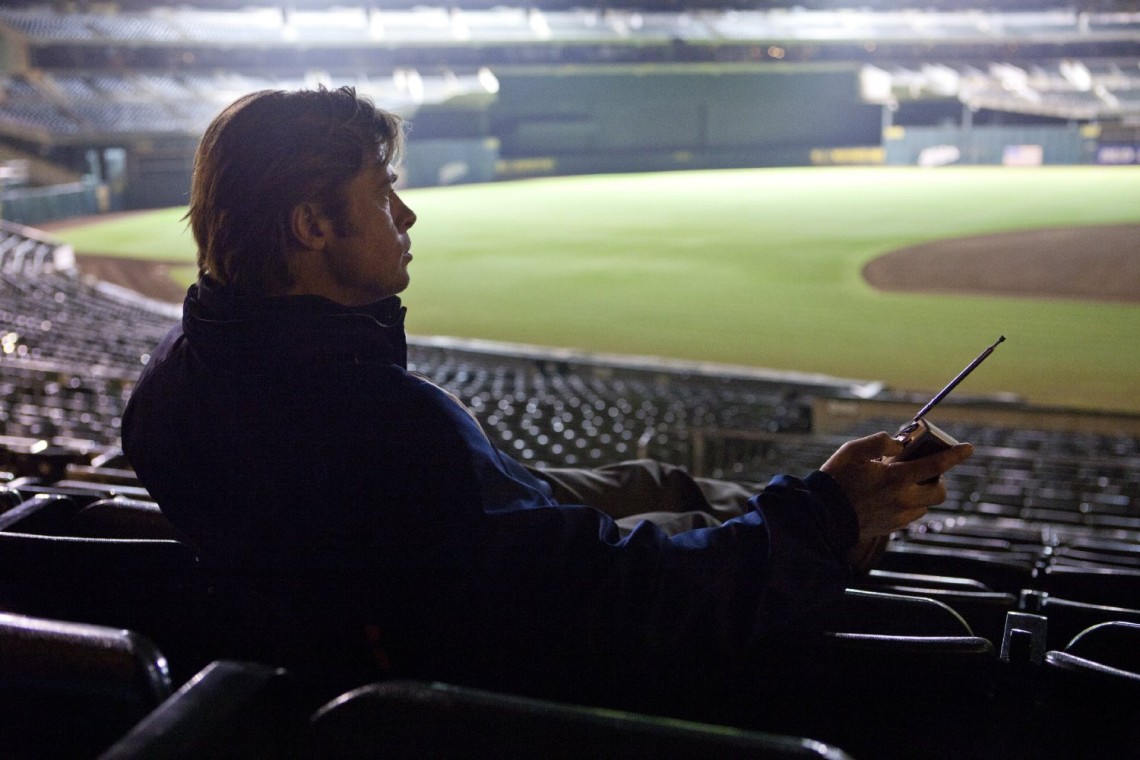
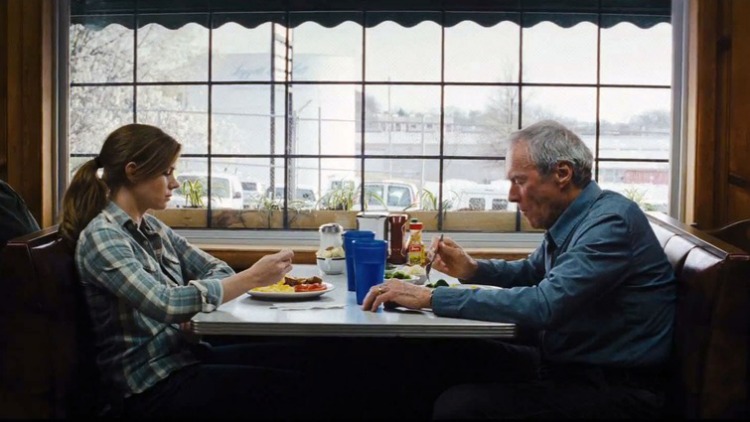
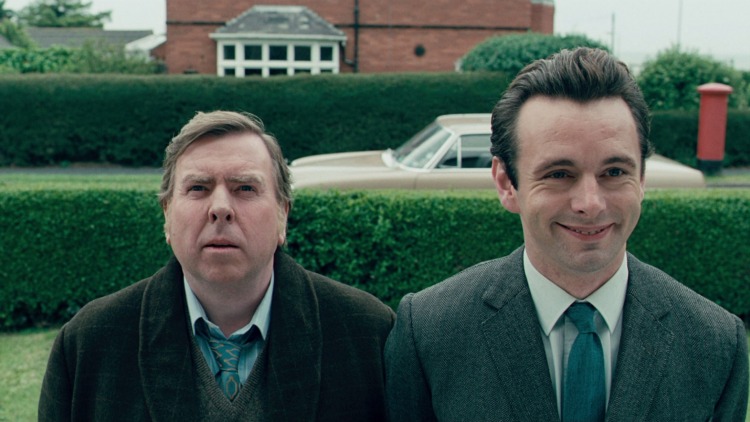
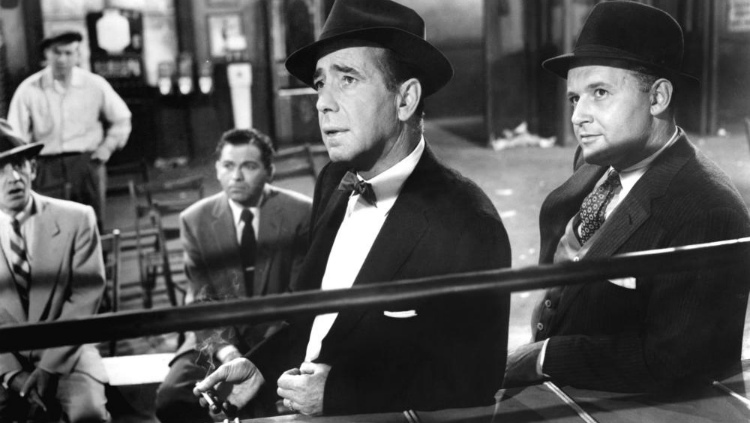
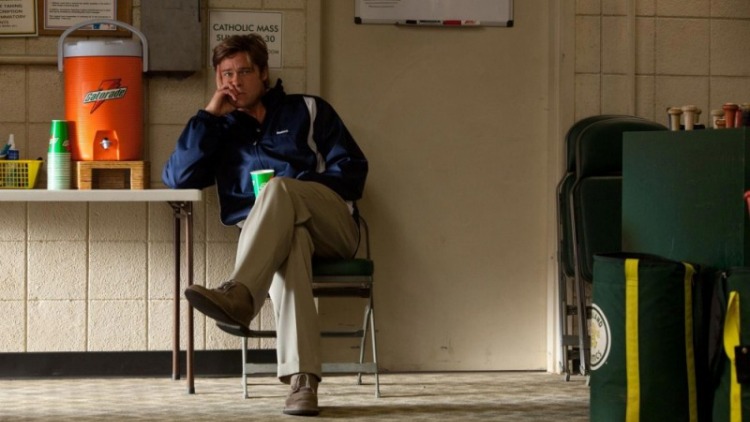
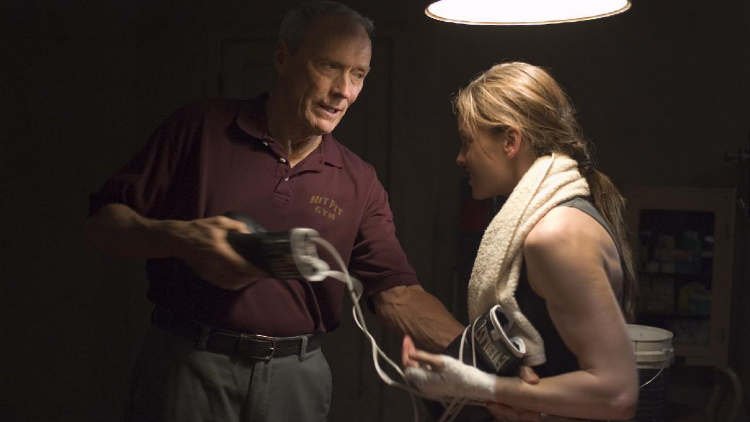
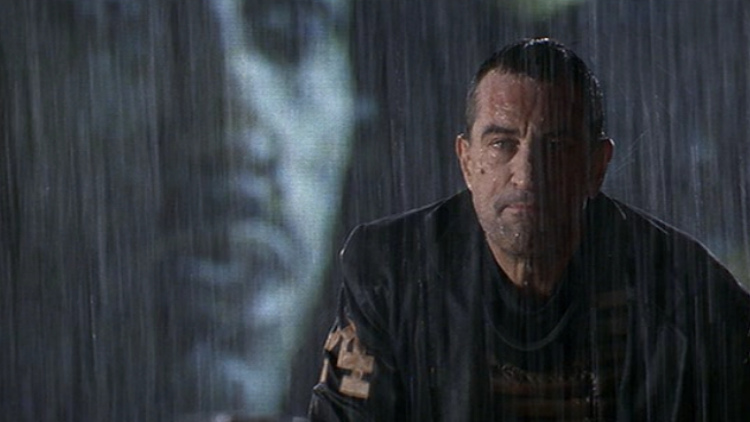
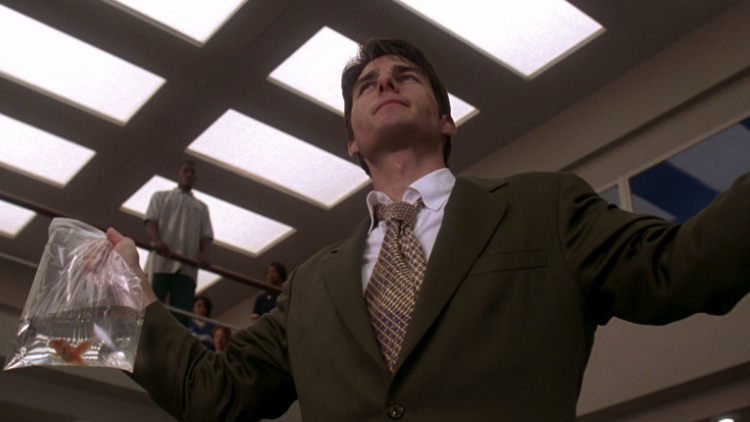
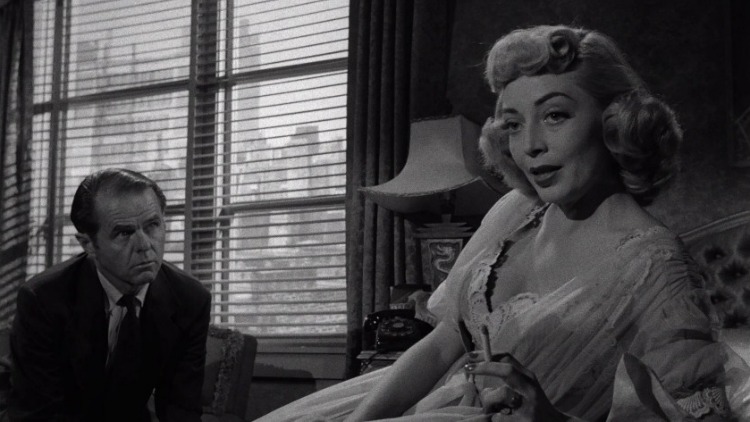
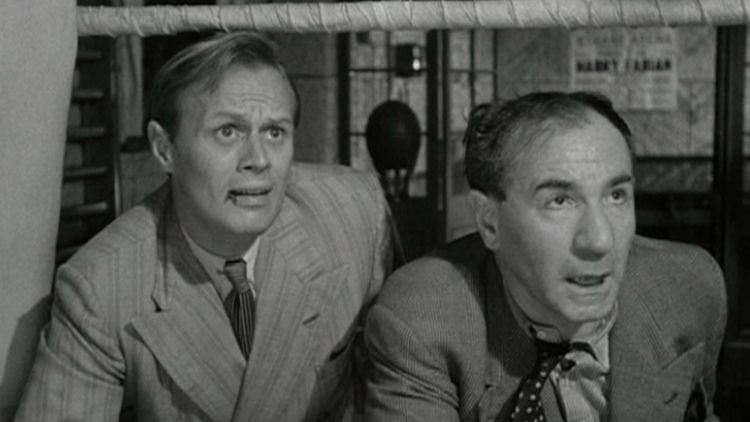
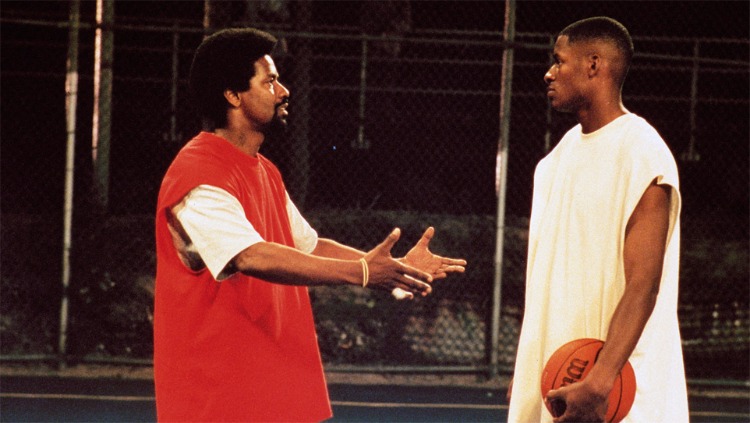
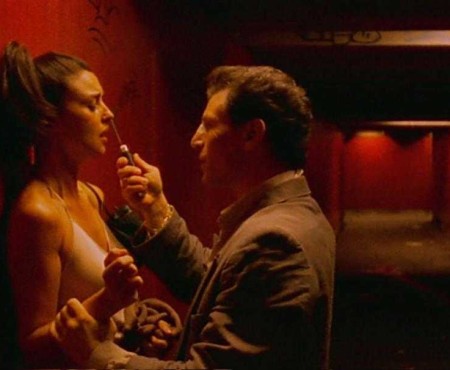

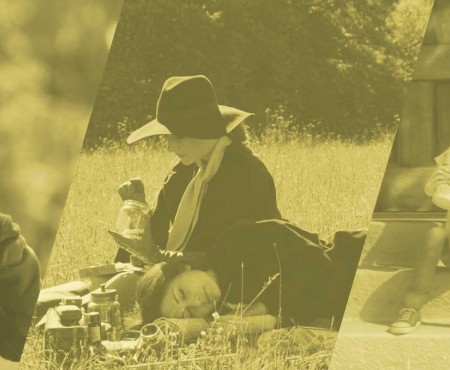
2 thoughts on “Top 10 Behind-the-Scenes Sports Movies”
He Got Game is an inspired choice and not the first that I would have considered when I saw the category. It’s one of those Spike Lee films that’s rarely recognized yet sticks with you because of all the layers like you describe.
Hmmmm….. no “Eight Man Out”? Or “Bull Durham”?